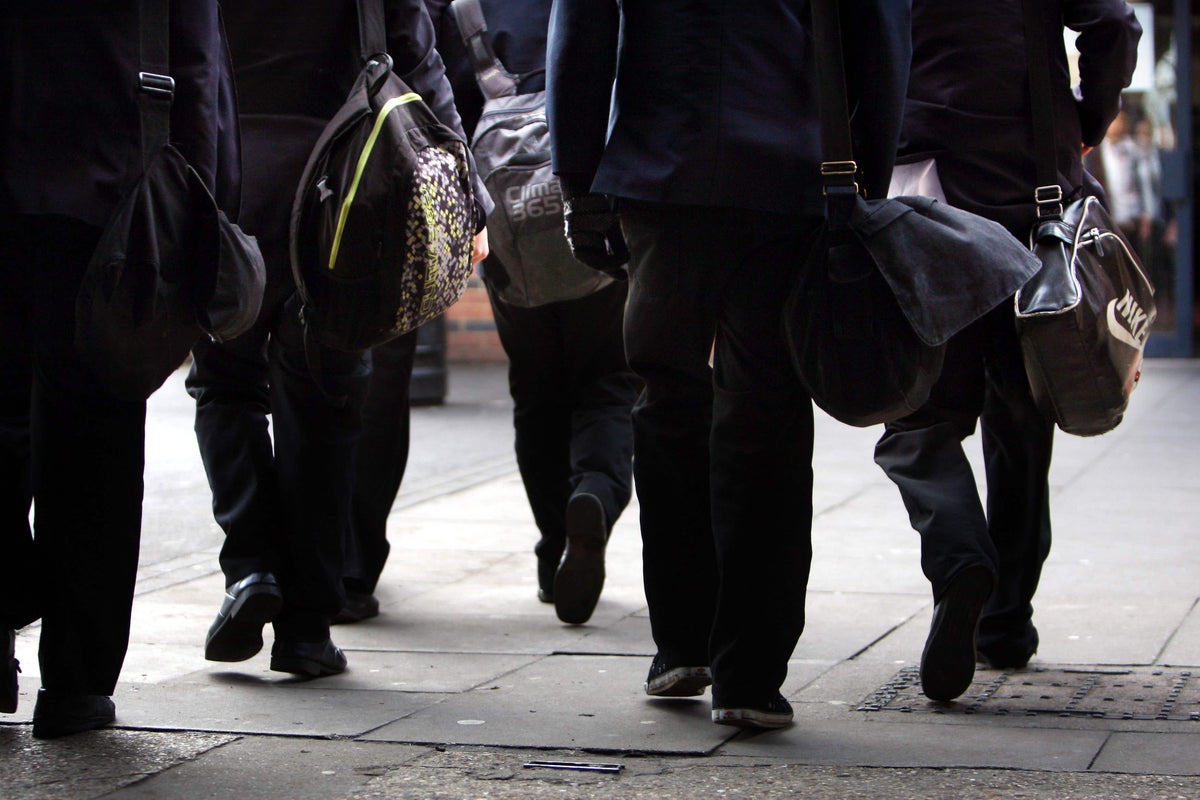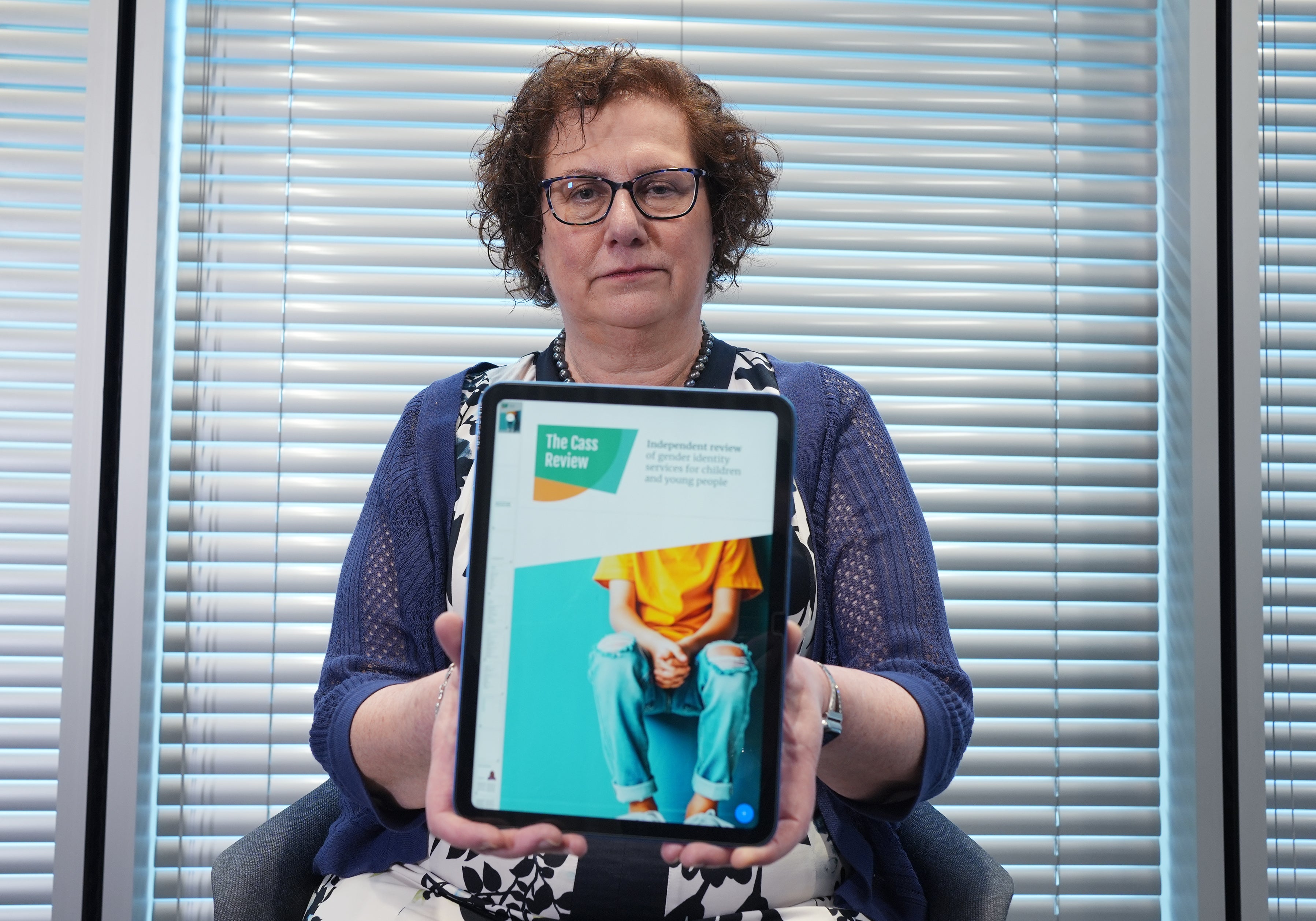
Academics are to study thousands of children who seek support from gender identity services run by the NHS in the largest study of its kind.
Experts said there is “limited evidence about how best to support young people who experience gender incongruence”, with previous studies looking at fewer children and research teams reporting high dropout rates among those involved in the studies.
Academics from King’s College London will track up to 3,000 children who seek help through NHS Children and Young People’s Gender Services, with recruitment expected to start in the autumn.
The announcement comes following the Cass Review of NHS gender identity services last year which concluded children had been let down by a lack of research and evidence on medical interventions in gender care.
The new research project, dubbed Pathways Horizon, will track the physical and mental health and wellbeing of children seeking help from NHS gender services over a number of years.
It could highlight differences among children with autism and ADHD, and potential differences among those seeking care based on their gender at birth.
“There have been an increase of about 20-fold in the number of children and young people presenting to gender services in the UK,” said chief investigator of the study Emily Simonoff, professor of child and adolescent psychiatry at King’s College London’s Institute of Psychiatry, Psychology and Neuroscience.
“That’s actually an international trend in other high-income countries in Europe, the US and Australia, and we don’t fully understand why.
“We know that there are differences in the children and young people who are presenting to services. And, most notably, that there’s a marked increase in the number of birth-registered females who are presenting to services.
“That means that we need to collect evidence about what are the care and support needs for the group of children, young people who are currently attending services. And that’s what Pathways aims to do.”
She added: “There’s been a real shift in the number of referrals over the last 10 or 15 years, and what was considered a rare problem 15 years ago is now much more common, and there’s a recognition that there needs to be substantial, large-scale research that can address some of the important questions.”
Under-18s involved in the study and their parents will complete a series of questionnaires which will focus on gender identity; physical and mental health; quality of life and wellbeing.
The surveys will also ask children how they feel about their bodies, their relationships and their school life.
They will be tracked for a number of years and their information will be linked to their health and education records.
The study is an observational study, which means the research team will track children over time without changing any elements of their care.
Dr Michael Absoud, deputy chief investigator from King’s College London, said: “We hope to understand how different types of support, whether it be it psychological, medical, educational, social, can best promote young people’s well being.

“Ultimately, our goal is to help in shaping the future services to help children, improve child health, support families and also clinicians working with services in the UK, to make more informed, compassionate and personalised decisions grounded in good evidence and data, and shaped by the voices of those affected.”
Professor Richard Emsley, study statistician from King’s, said: “We’re describing the young people coming to the service and the experiences that they’ve had much more comprehensively than other studies have done.
“This will include adverse childhood experiences, social transitioning, neurodiversity such as autism and ADHD, and mental health symptoms including anxiety, depression, eating problems and difficulty managing emotions.”
Puberty blockers are not prescribed on the NHS to children for the treatment of gender dysphoria following a ban.
Plans remain in place to set up a clinical trial into the use of puberty blockers in children, although no patients have yet been recruited while ethical and regulatory approval is awaited.
Experts from the new trial expect some of the children they will study will be part of the puberty blocker trial.
The studies will be “linked” but will run independently.
Two children’s gender hubs, led by London’s Great Ormond Street Hospital (Gosh) and Alder Hey Children’s Hospital in Liverpool, opened in April 2024.
This followed the closure of the gender identity development service run by the Tavistock and Portman NHS Foundation Trust.
A third service opened in Bristol last November while another is planned for the east of England and is expected to open soon.
The aim is for there to eventually be up to eight specialist children’s gender clinics covering the seven NHS regions in England.
Thunderstorm warning to come into force bringing rain, lightning and hail
The most affordable market towns for first-home buyers
Two British siblings, 11 and 13, drown off Spanish beach
Canada will recognize a Palestinian state in September in latest push against Israel's Gaza policies
Ozzy Osbourne funeral latest: Sharon and Metallica stars attend private service
‘It’s time to pay up’, says Starmer in late payments crackdown







